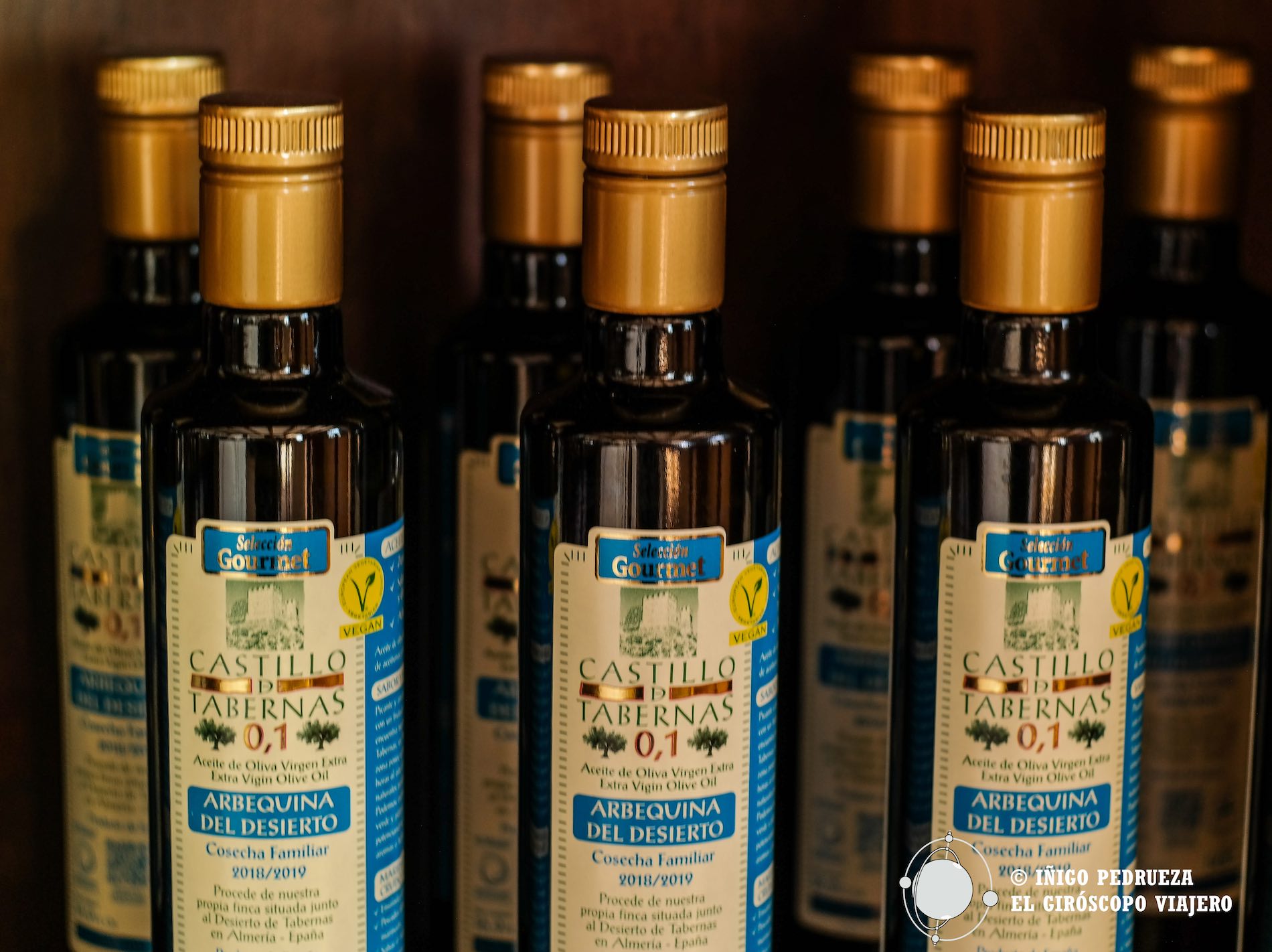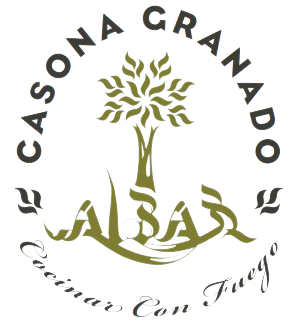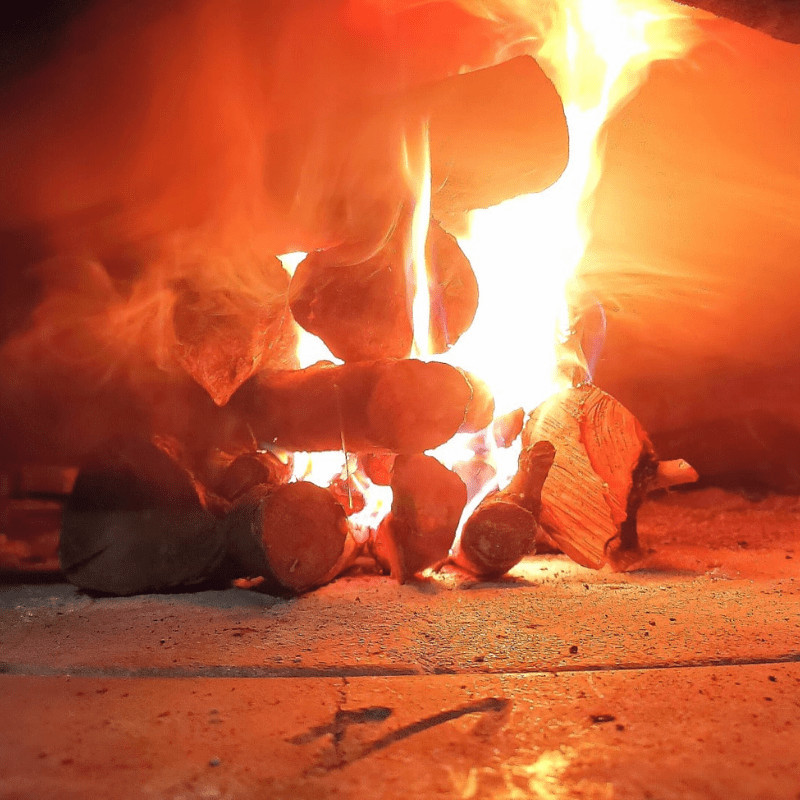
Olive oil is something intrinsically linked to Spanish and Mediterranean gastronomy. There is always talk of this liquid, reminiscent of gold, which summarizes and oozes the best of the wild nature where the olive tree grows. Many countries produce olive oil, and many regions in Spain, from Navarra, Aragon and Catalonia in the north to Extremadura, Andalusia, Murcia and the Balearic Islands in the south and southeast. But also, in the two Castiles, Madrid and the Valencian Community. The Traveling Gyroscope, as everyone knows oil, its virtues, or so we thought. Because this last trip to Andalusia has allowed us to visit several oil mills and restaurants in Almería and Jaén, tasting a wide range of types and uses of olive oil in the gastronomy of this part of Spain. But the most important thing is thatwe have learned a lot, discovered a new philosophy and without hesitation we have converted to a new faith . Religion does not interest us, but we have found a wonderful light, something that fills our soul, nose, palate and stomach . It all comes down to a strange four-letter word that in our ignorance we had not heard: EVOO .
But what is EVOO?
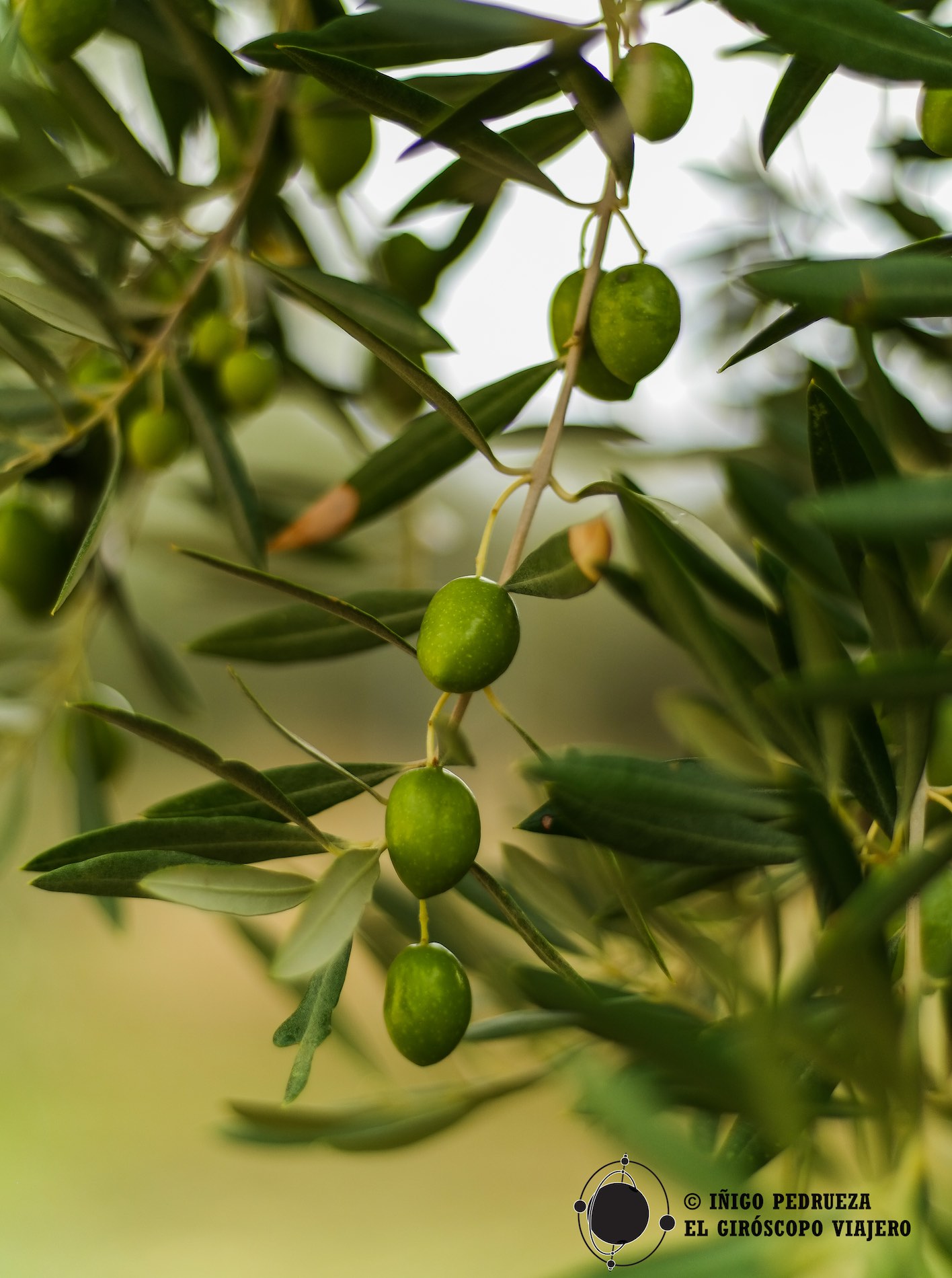
The acronym means, as almost everyone knew, except us, Extra Virgin Olive Oil . But as new converts, from now on it is our only belief … well, actually our heterodoxy is still vigorous and we also adore Finnish bread, cheeses from around the world, French Champagne, Iberian ham, Azores pineapples and their bolos lêvedos, avocados from the Canary Islands, and mojo, and alborote and gofio, and Italian pasta and Portuguese cod (with permission from al pil-pil) and quesadillas from Mexico and Swedish Smörgås, the mythical sandwiches in my brother’s frying pan and the recipes of our grandmothers and mothers . Anyway, the truth is that we are more than polytheists … Anyway, let’s focus on EVOO, because it really is worth it.
Thanks to the owners of the oil mills we visited on our trip to eastern Andalusia, we discovered how wrong we were when we thought that “normal” olive oil was quality oil. Did you know that only the oil obtained in the first pressing, at a low temperature, is the true oil, edible and full of healthy properties? Yes, that olive juice is the true green gold, the only one that does not have to be refined and that maintains all the properties nutritional, freshness, pleasant taste, color and texture. The acidity of Extra Virgin Olive Oil is also lower with less volatility of all the elements that give aroma and flavor to EVOO. In addition, and contradicting many preconceptions, extra virgin olive oil is the most suitable for frying, because it resists and degrades less the high temperatures of the frying that are approaching 180 / 200º.
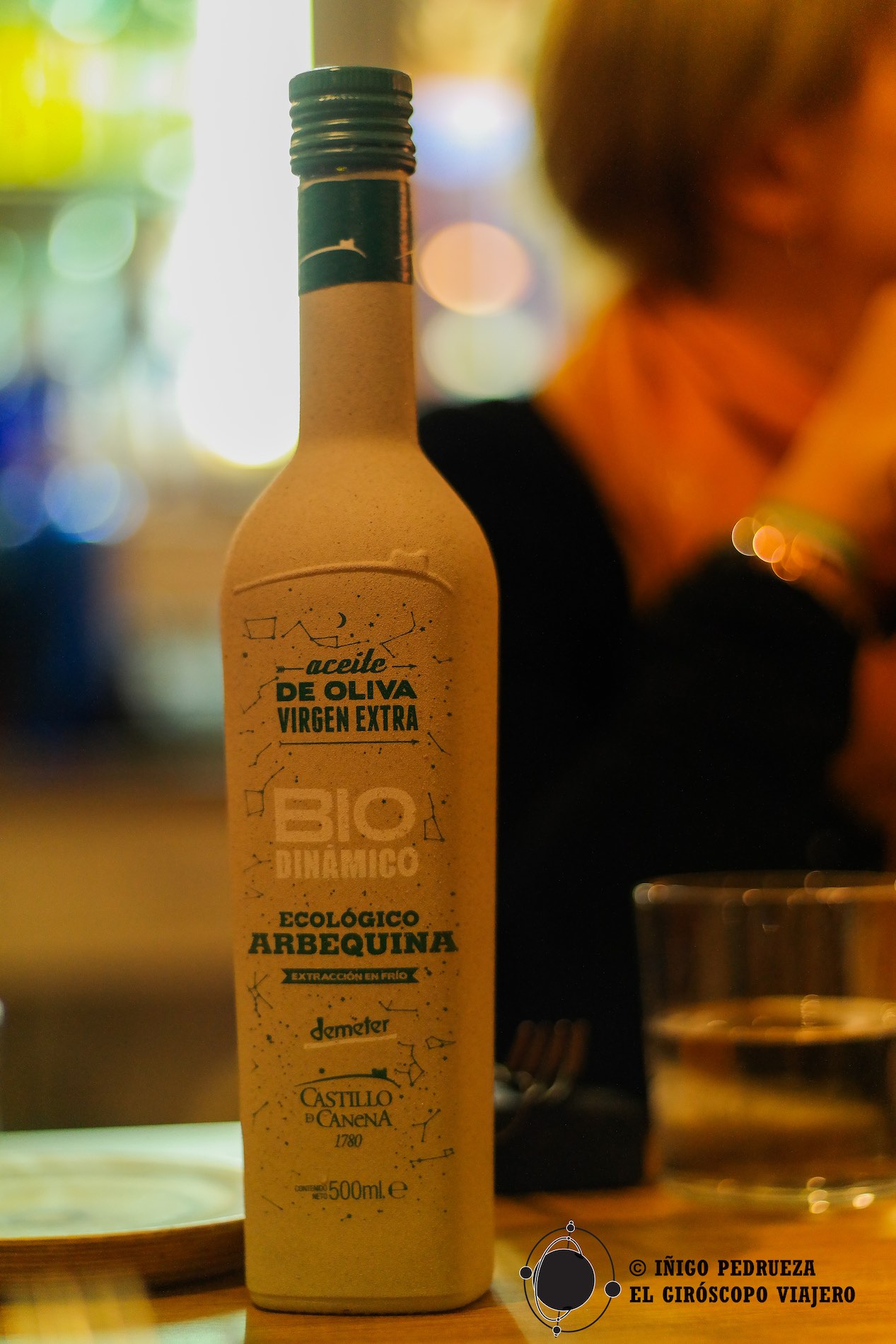
But to achieve that extreme quality you have to sacrifice quantity. Cold pressing the oil means having a much lower yield. And to understand it better, we are going to summarize the EVOO production process and its differences with mild and intense olive oil.
How EVOO is produced and manufactured.
Of course most of the process takes place during the long years of cultivation, care, pruning and maintenance of the millions of olive trees that populate the fields of Spain. Only in Jaén, the province that produces the most there are 64 million olive trees, 64 million! We will ignore all the efforts of businessmen and farmers, the day laborers, who leave their sweat on every square meter of land, at the foot of the millions of olive trees that silently await the moment of harvest.
Harvesting olives.

Collection and transport are very important as they must be done with extreme care and very quickly. To produce Extra Virgin Olive Oil, without failure or tare, it is necessary to choose the best olives, those that have not suffered any bad weather, that have not been chopped by hail and that are not too ripe. Generally the best oils have a green olive ratio of 9/10. That is why green olives of color are needed but with their point of maturity that will give us the best EVOO.
The collection is usually done by mixing the mechanical means and the work of the farmers. Fortunately, new machines carry out the bending without damaging the tree and guaranteeing a select collection. The harvest takes place between September and January depending on the area and the climate of each year. To obtain a quality EVOO, it must be done as soon as possible, generally between the end of September and November, to keep the level of polynefoles in the olives high, which are very active as antioxidants. The collection must be done quickly so that the olives do not become contaminated, always at a low temperature, which is why it is generally done at night before dawn.
Once collected, they are transported to the hopper through which they enter the oil mill.
Separation and washing.
In the oil mill, the olives are washed and separated from the twigs and leaves, which are often used as compost or as fuel for the machines themselves.
Grinding.
The third step is the crushing and grinding of the olives. This is done in such a way that a suitable paste for pressing is obtained. It is very important that the olives are never too hot. To obtain an oil that can be qualified, and sold, as EVOO it is essential that the temperature during the entire process never exceeds 27º. Generally EVOO is produced below 25º, around 21º. But don’t forget when EVOO seems expensive to you that the lower the temperature, the less oil you get, but the higher quality it is.
Pressed, where the green gold is born.
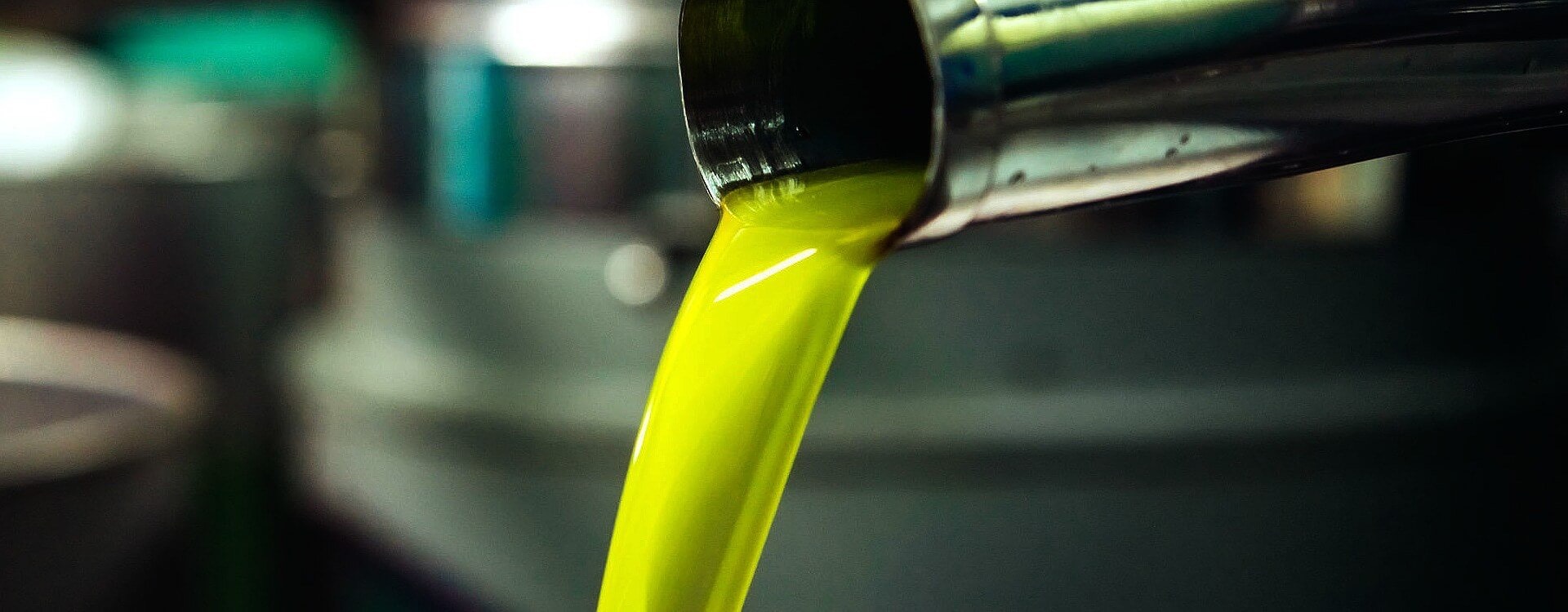
And we come to pressing, which is often done below 20º to obtain the delicious olive juice, Extra Virgin Olive Oil. The first pressing that creates this delicacy is done as quickly as possible. The machines separate three products by centrifugation. First the one we are interested in EVOO; then the pomace, which are the remains of the olive stone and the pulp; and finally the vegetable water, made up of water and traces of oil. EVOO arises in the first moment and is quickly separated from the rest to avoid any contamination. Thanks to separate stainless steel tubes, each liquid or solid reaches different tanks. The EVOO is stored in large warehouses where it will be monitored that the quality is pristine.
Packing.
Finally, the packaging is very important so that the EVOO does not lose the intensity of flavor and aroma or the quality of its elements.
And then where do “normal” olive oils come from?
The other two by-products, olive pomace and vegetable water, are normally sold to other companies. These by-products are used to make the millions of liters of mild, intense olive oil and olive-pomace oils. And this is when we were left with our eyes open, since both the pomace and the vegetable water are heated and pressed again. The oil obtained with these processes cannot be consumed as such and needs to be refined to make it edible. The mild and intense olive oils are totally neutral, they have neither taste nor aroma, neither. Once refined, they are mixed with 10% virgin or Extra virgin Olive oil and the olive oil consumed by the majority of the population, in Spain and around the world, is obtained. Surprise and disbelief… but reality.
The question of price.
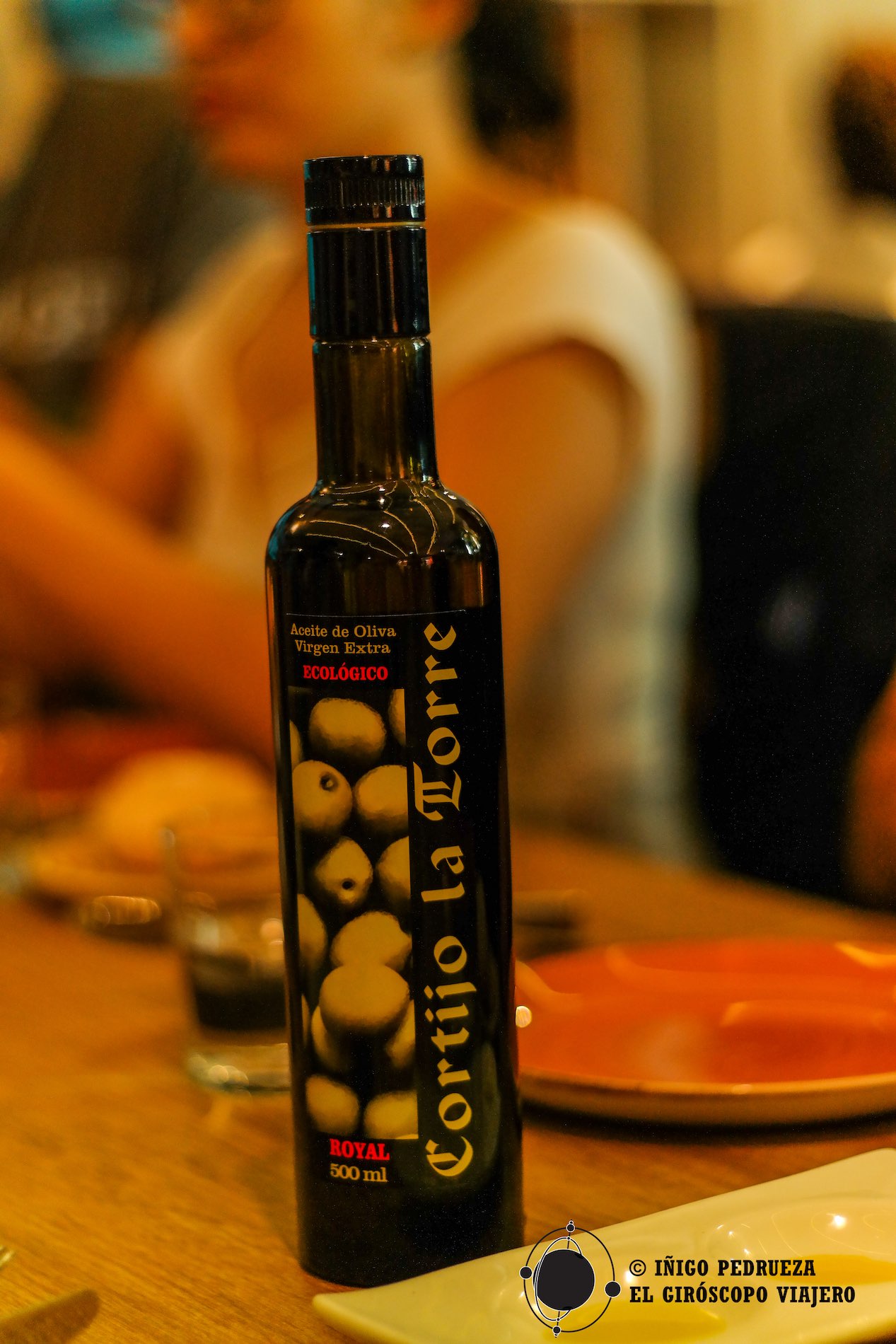
Of course, many will say that it is easy to talk but that mild or intense olive oil is not exactly cheap, so an extra virgin can cost 50% more and, from there upwards. It’s true, but when we go out for a drink at a bar, we pay without thinking about it € 2 for a Coke or a beer and, from there on up.
A liter of EVOO can last a month for a couple. ? Even if we need to fry, virgin olive oil is always better, it burns less because it resists high temperatures better and is thus healthier. Unless we fry potatoes every day, a liter or two is enough for the month. Three liters of excellent extra virgin olive oil can cost € 20… How much do we spend on soft drinks and beer in bars every weekend? How many that are not even good without tasty do we consume throughout the year? Maybe it all comes down to a matter of priorities.
Obviously, everyone can do what they consider appropriate, but perhaps it is not a bad thing to reflect on the value, and the price, of each product. We believe that it is better to consume less quantity in general, but higher quality products. It is a way to prevent the price and family spending from skyrocketing, and yet we can increase the value and quality of the products we consume. At the gastronomic level, it is convenient for all of us to eat less, but eat better. EVOO is a source of health, for its nutritional value and for the value, let’s say, aesthetic and gastronomic, that it confers on all the dishes we prepare, from a humble and tasty salad to the best meat or the best fish. With EVOO, the humble salad becomes sublime, due to the oil and the dull northern bonito in summer,
Of course, money is always a problem, however keep in mind that every penny you pay for an extra virgin olive oil will be well paid.
Where and with whom we have learned.
Thanks to our press trip through Eastern Andalusia, and the exquisite work of Enrique Parra and Turismo Costa de Almería and Mabel Selfa from Jaen Paraíso interior, we were able to meet the owners and producers of several oil mills in these two provinces and taste a dozen of different brands. Try them to embrace the new EVOO philosophy. Thank you friends because without you we would continue to be immersed in ignorance!
But the main work is due to the companies and farmers that produce EVOO oils in Andalusia. As we said, there are excellent oils in many areas of Spain and in many countries of the world, that is clear. But today we highlight however, these oil mills that welcomed us with such affection and care.
Aceituneros de Jaén.
Jaén is the province of the olive tree, its geography, much more diverse than it seems, resembles in areas an immense ocean of olive trees. The olive groves ramp up the hills and the hills, flood the plains and approach the mountain ranges. Jaén and its oils do not need presentation, EVOOs do and we do it with great pleasure.
Nobility of the South and the sea of olive trees.
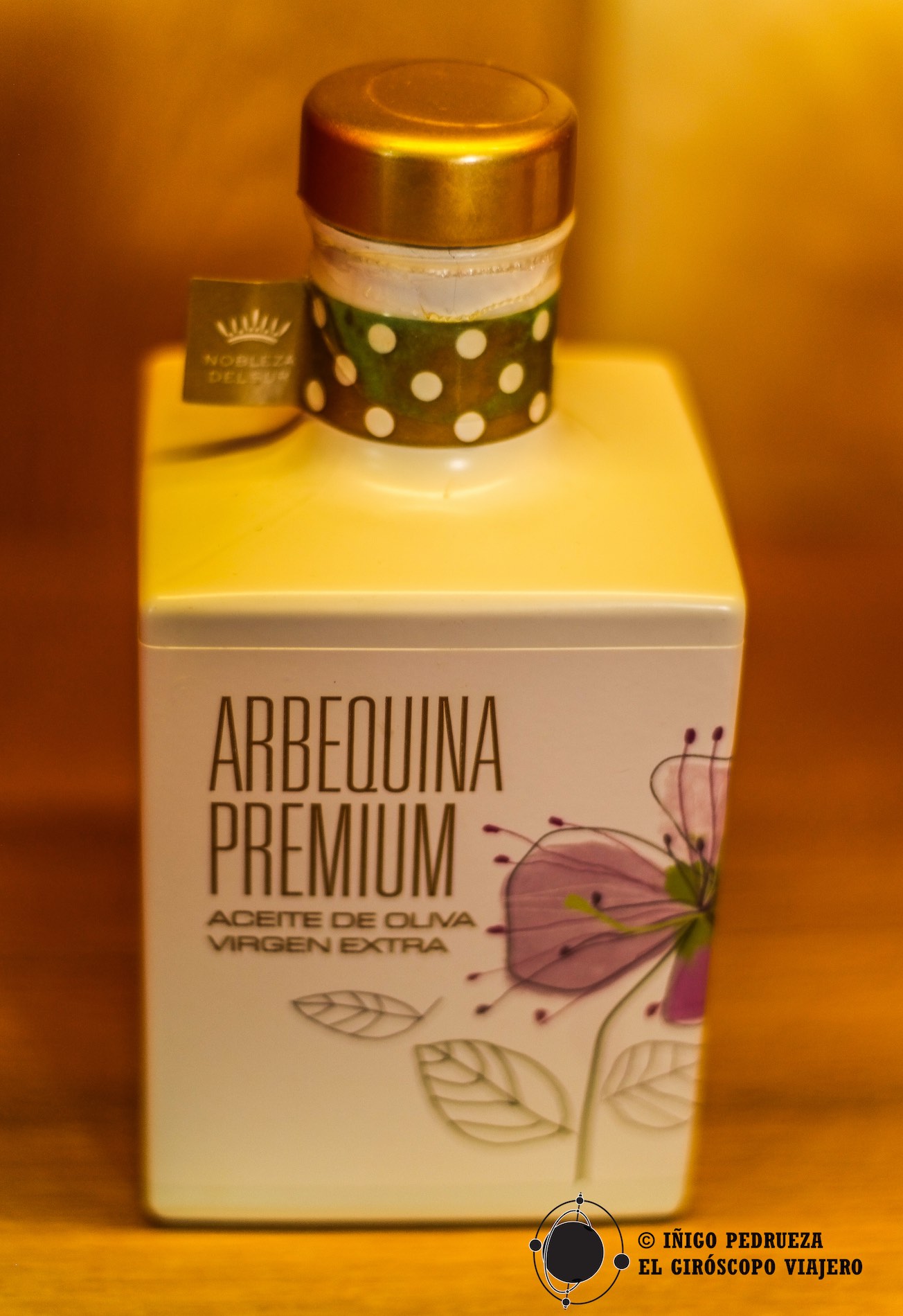
We must highlight the visit of the Nobleza del Sur oil mill , where Mrs. Dolores SagraIt helped us understand a little better what EVOO is thanks to an oil tasting. 12 generations of producers have created this oil since 1640. Today the Peñalosa – Sagra family can boast of producing exquisite EVOOs that have earned them multiple national and international awards and accolades. An excellent example of work, care for tradition and investment in modernity. Thanks to all these joint efforts, Spanish olive oil is known outside our borders and recognized at the same level as that of other countries that have managed to develop marketing. All in all, the quality level of Spanish EVOO should get even more recognition, glamor and sales abroad.
Nobleza del Sur, which by the way, enlivens our mornings by lighting up toasted bread and flavoring our awakenings, produces various types of EVOOs. Each one a little different, all delicious. Umm, it makes our mouths water thinking about the aromas and flavors that escape from every drop of this humble and exquisite olive juice. Anyway, let’s be brief. We have the deep and Mediterranean Premium Centennial ; the Arbequina Premium Monovarietal sweet and aromatic; and the more personal and deep Family Reserve .
We enjoyed seeing the entire production system and learning with Dolores. We were sorry not to visit the oil mill at dawn during the harvest, when the dew is still fresh and the oil is produced. Seeing the farmers work, the machines roar and see the green gold of Jaén emerge, must be a unique experience. Now we understand a little better why Nobleza del Sur affects philosophy. A word that is perfectly suited to this type of production, which is obviously made to make a living from it, but which goes much further. A philosophy that seeks quality and symbiosis with the environment to continue to please the palates of more people every morning of their lives.
In Jaén we also tried at least a dozen different EVOOs, during our gastronomic discoveries. Because how do you eat in Jaén? And what quality of restaurants! The photos that appear illustrating the article recall those EVOOs. Because there is not a single brand, there are a myriad of good producers that feed ours. How eager to return to Andalusia!
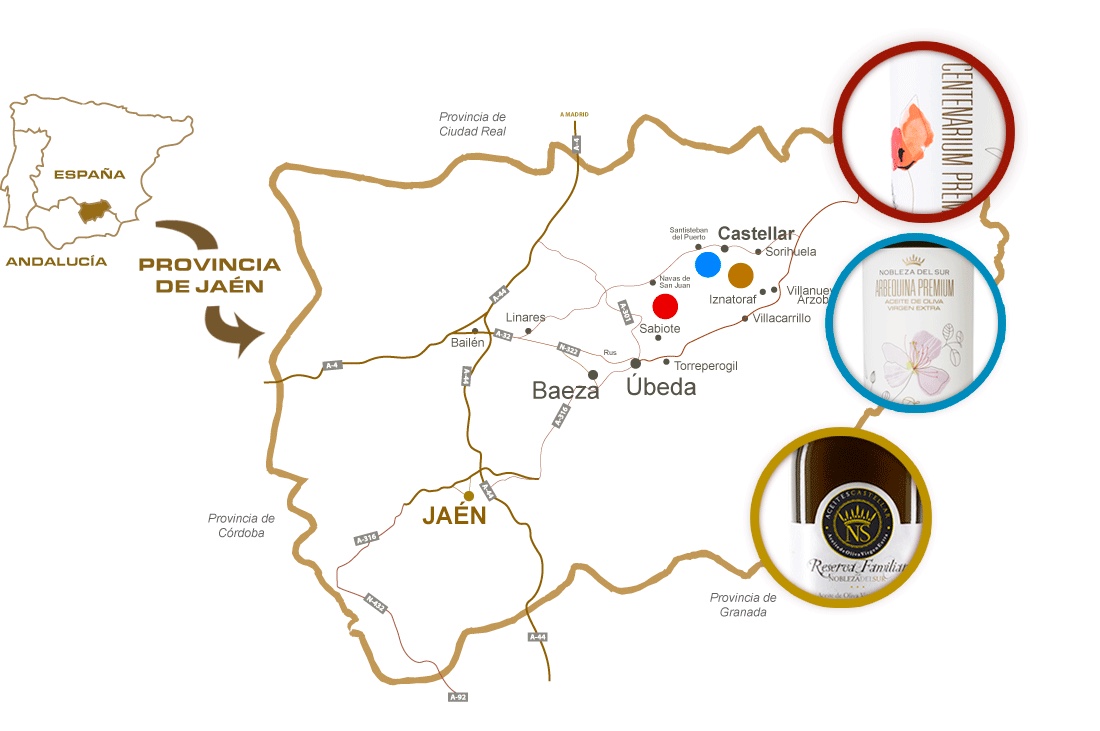
Almería is much more than a desert.
Almería is not so well known or reputed for its oil, but, here we are to break a spear for the Extra virgin Olive Oils of the province. Good EVOO is produced with the help of the earth and with the effort of the people and in Almería they have a lot of this, because there are deserts, but also a lot of water and excellent olive groves.
The oil of the desert: Castle of Tabernas.

We visit the Castillo de Tabernas oil mill, located on the edge of the famous and cinematic Tabernas desert. How many films have the Bad Lands of Almería (and those of the Guadix region and the Gorafe desert in neighboring Granada) taken advantage of to take us to the farwest with cowboys and Indians or the fantastic lands of Game of Thrones, and a thousand other places …
But why did they not imagine that the olive tree grows on that edge of the desert and another fabulous virgin olive oil is produced? One of them, the Gourmet Castillo de Tabernas EVOO has only 0.1 natural acidity. An area with more than three thousand hours of light and abundant water that comes from the aquifers irrigated by the Sierra Nevada produce great oil. As in all Spanish EVOO oil mills, Castillo de Tabernas takes care of the entire process to avoid contamination in flavors and aromas, guaranteeing the highest quality. EVOOs ooze oleic acid and natural antioxidants, vitamin E.
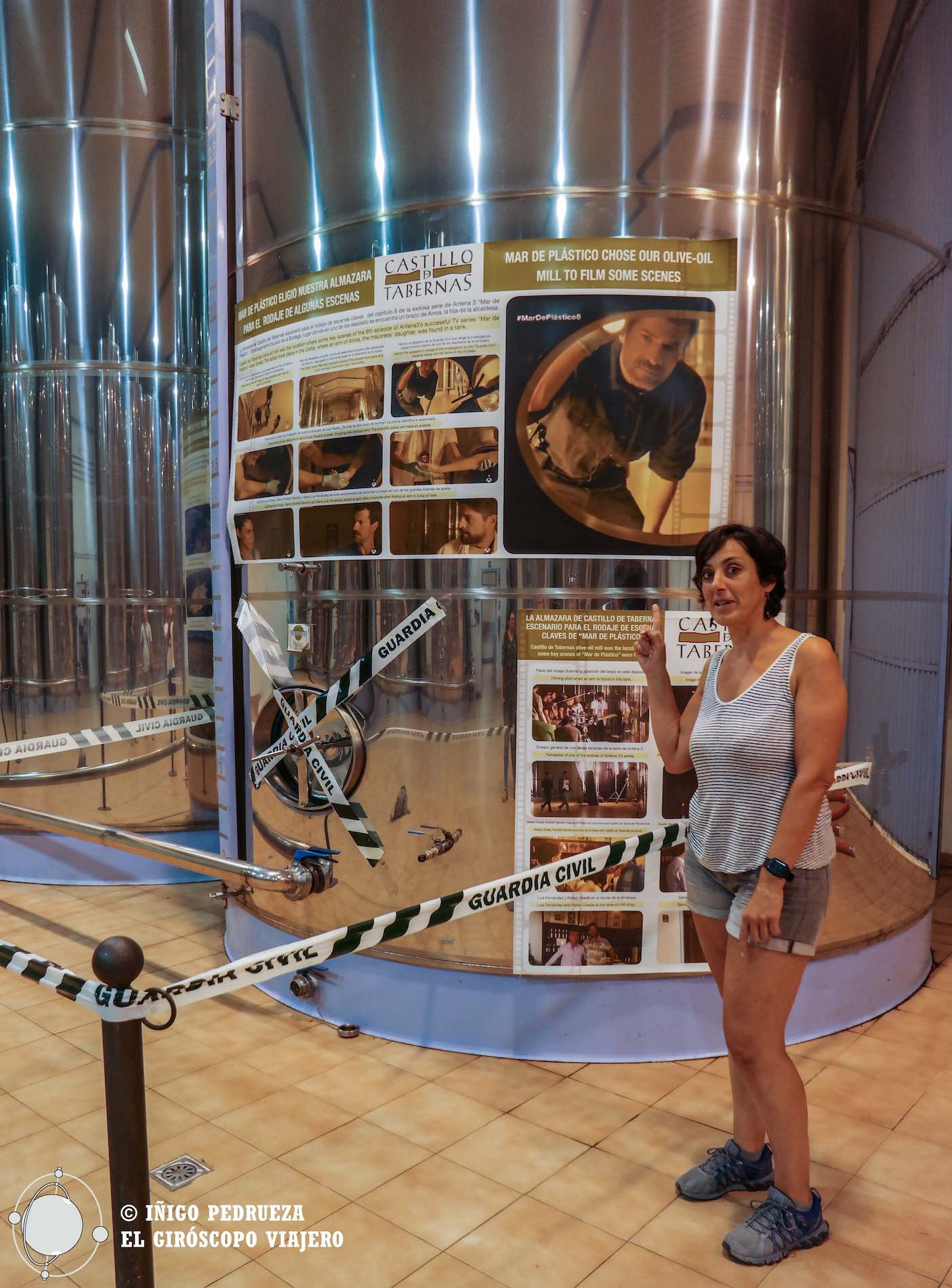
In the company of Mrs. Carmen Rueda we discovered the Castillo de Tabernas oil mill facilities. In this film mill, EVOOs are produced with low acidity Extra Green olives; monovarietals from Picual, Arbequina and Hojiblancas from the desert; and a special blend, a blend that brings together the best of each variety of olives in the same bottle. And we say cinematographic because in its warehouses, next to the steel vats where the precious EVOO is kept, the police series Mar de Plástico was filmed.
Like Nobleza del Sur, Castillo de Tabernas can personalize the packaging, making EVOO a perfect gift for companies or events.
For any doubt or question, do not hesitate to fill in the form that we leave below and we will put you in contact with the producers.
Oleotourism.
Finally, remember that both oil mills offer oil tourism services, a niche that is growing a lot. A perfect idea that must be developed, since in addition to educating and popularizing the EVOO culture, it is an alternative to mass tourism. The activities may include visiting the olive groves and the oil mill, tasting or tasting the oils, breakfasts … And also, in the future, the possibility of staying in rural areas where olive trees grow to feel that harsh and rugged nature that it creates. extra virgin olive oil.
Thanks.
A very special memory for Turismo Costa de Almería and Jaén Paraíso Interior , for Enrique Parra, Mabel Selfa respectively, and Manuel Torres from Factoria de Histories for organizing such a wonderful trip. And of course for the Nobleza del Sur and Castillo de Tabernas oil mills, for their precious help, without which this article could not have been written.
